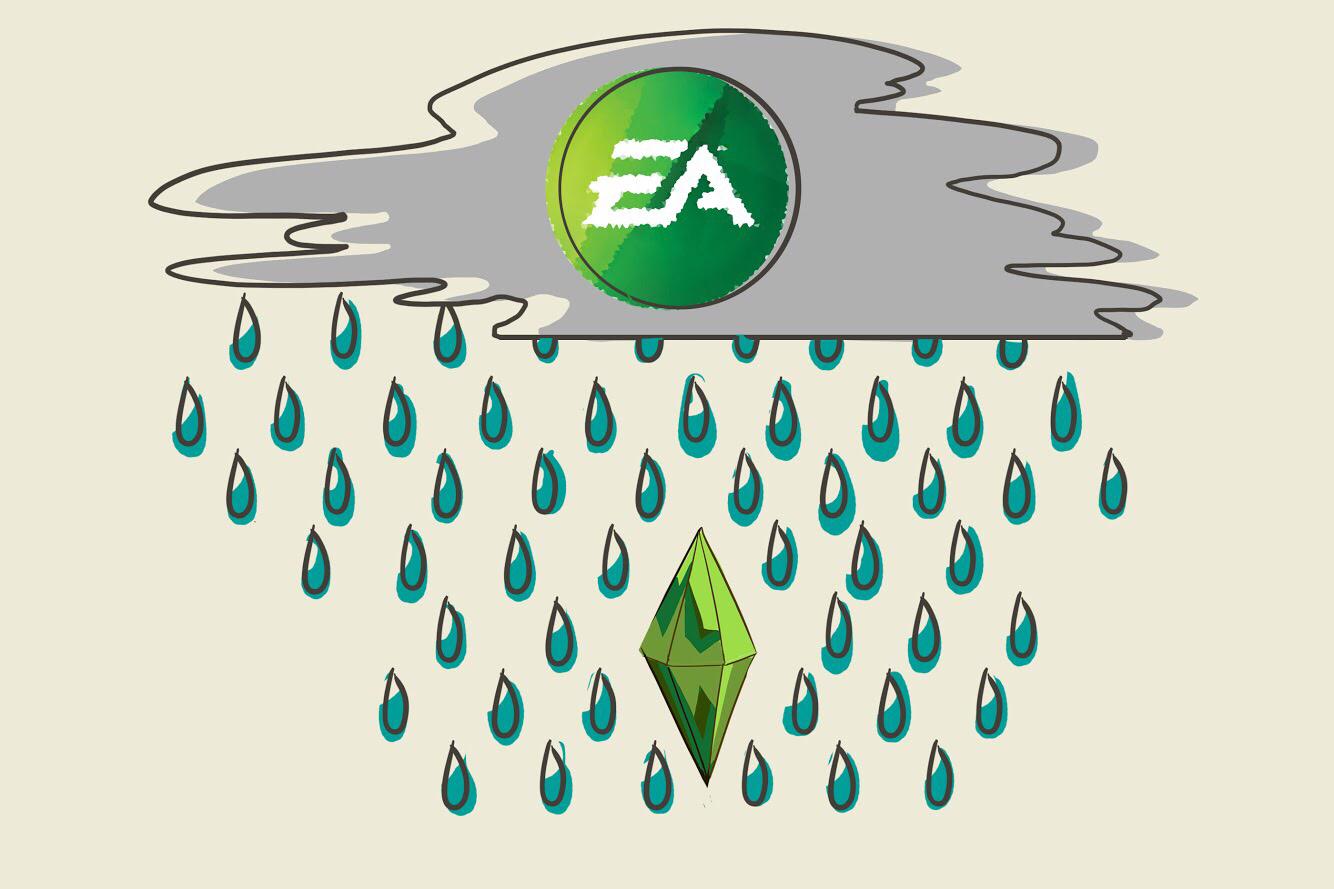Gather around, folks. Allow me to regale you with a classic tale of love and heartbreak spanning almost three years. The “will they or won’t they” of your favorite sitcom couples pales in comparison to the never-ending saga of “The Sims” and its players.
In particular, “The Sims 4,” the newest installment to Electronic Arts’ (EA’s) beloved life simulation franchise, has stirred up a rollercoaster of emotions among members of its fan base. Lately, players have begun debating the fate of the game series, feeling as if EA is steering it toward failure. But is the fate of “The Sims” really as hopeless as social media suggests?
“The Sims” games center on the players’ ability to create “Sims” — virtual humans with personalities and ambitions — and take complete control of their lives. Players can also use the game to experiment with architecture, decoration and landscaping. Traditionally, each main series entry begins with a base game containing a large portion of the content, but not the entire package.
As the lifespan of the game progresses, various “expansion packs” are sold to add new gameplay features, while “stuff packs” add items, such as new clothing or furniture options, without expanding on the game mechanics. These all fall under the umbrella term “downloadable content.”
Whether you play “The Sims” or not, you’ve probably heard of downloadable content, also known as “DLC.” A magnet for controversy in the past several years, DLC is simply new content for a game that is purchased or downloaded for free as a separate add-on. To many irate gamers, a more suitable definition would be “things that should’ve been in the game in the first place.”
EA is no stranger to being on the receiving end of public backlash. Late last year, the now-infamous developers came under fire for locking several iconic characters and powerful multiplayer abilities behind DLC in “Star Wars Battlefront II.”
That’s why, on March 6, 2018, longtime fans of “The Sims” franchise — myself included — were stunned by EA’s nerve. They had outdone themselves. As true industry innovators, EA created, possibly, the first DLC for your DLC: meet “The Sims 4: My First Pet Stuff.”
https://www.youtube.com/watch?v=h_uRr36nQG0
With every cycle of the game, the expansion pack introducing pets is always one of the most coveted entries. “The Sims 4: Cats and Dogs” followed suit and fit the mold to a T. It provided an in-depth system of creating pets while also containing a sizable amount of building content for houses and cosmetic items for Sims.
Three months later, the related “My First Pet” stuff pack delivered smaller pets and the usual extra elements. Although the content was new, players deemed it less than original. It took a day or so for the boycotts to start.
As noted by many frustrated gamers, several of the furniture items seemed as though they were removed from a set included in the aforementioned expansion. Players suspected that the complete set of bedroom furniture was supposed to be included in “The Sims 4: Cats and Dogs” and a few items were extracted and offered as paid DLC, so EA could make some extra cash.
Fans made online petitions for the pack to be free DLC, called for others’ refusal to purchase it and requested that the $9.99 DLC fee be donated to a local animal shelter, instead. In addition, some popular Sims video creators on YouTube expressed their disappointment in the pack and the development team.
All in all, this was the worst public response to any piece of content released for “The Sims.” This is notable because “The Sims 4” has been divisive from the beginning, gutting staple features from the previous installments like the toddler life stage and open world navigation.
With every scrutiny, the stakes were raised and rock-bottom continued to sink lower. But this was definitely the third strike for EA. Masses of the player base began to wonder if the video game developer had completely doomed the franchise.
In response to strong public criticism five months after the base game’s debut, developers stated that if the game didn’t succeed in sales, they wouldn’t be making a “The Sims 5.” After the most recent stuff pack debacle, the ultimatum echoed throughout social media and online forums once again. All hope seemed to be lost.
Then, on May 24, 2018, EA dropped the reveal trailer for “The Sims 4: Seasons,” one of the most highly anticipated returnees from the past games. Once again, fans were singing the company’s praises, seemingly sweeping the lingering feelings of betrayal under the rug. And so, the tumultuous on-off relationship persists.
But, was the franchise truly in danger, or is the advent of social media popularity contributing to mass paranoia?
It’s easy to forget how much of an impact “The Sims 4” has had when you are being inundated by the swirling cloud of negativity that constantly hovers over it online. Its predecessors didn’t have to contend with the current level of social media popularity. While EA has made some questionable business decisions, they’ve also taken plenty of steps forward with their new content, even if it isn’t celebrated online to the same extent.
Every addition to the series has been innovative. The original carved out the niche for “life simulation” gaming. In the next cycle, “The Sims 2” refined the virtual families, allowing players to create multi-generational legacies. Following this feat, the developers gave players full access to every inch of a hyper-realistic world in “The Sims 3.”
The newest member of the family introduced the capability to travel between multiple neighborhoods, download other players’ creations within seconds through the “Gallery” and customize gender options to improve the level of diversity present in the game — all for free.
If the fan base’s recent emotional whiplash is any indication, there is still a lot of hope and excitement left to come for the “The Sims” franchise. Not every pack in its history has been a complete knockout.
The social media uproar has done a number on the morale of players, but it’s important to remember that a significant portion of players are still invested in the game, happy with the content and ready to purchase upcoming releases. As long as they keep it up, the franchise isn’t going anywhere — regardless of what a vocal minority continues to amplify.

















